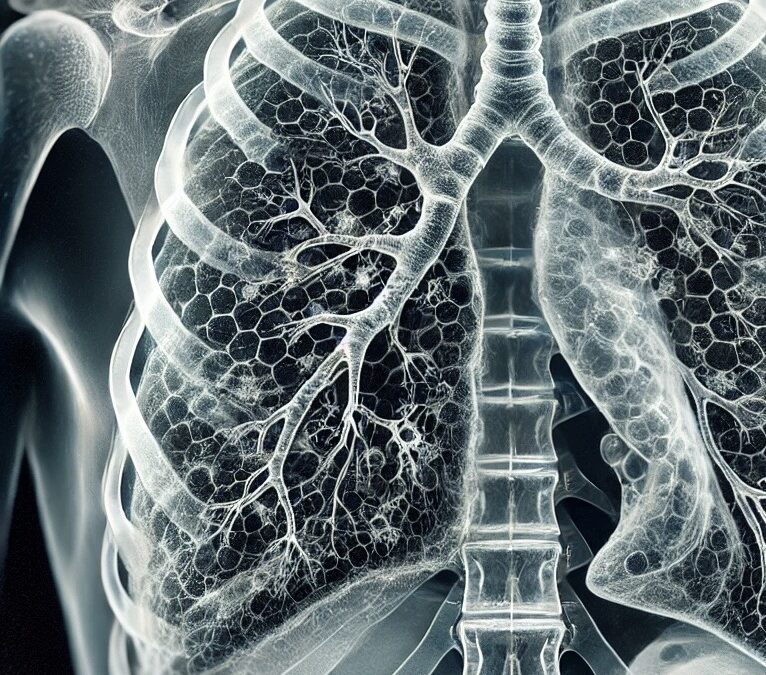This study explores whether the presence of certain antibodies (anti-SSa and Ro52) affects the progression of lung disease (interstitial lung disease or ILD) in people with idiopathic inflammatory myopathies (IIM). These antibodies are often found in individuals with IIM, and previous research suggested that people with Ro52 antibodies might experience a more severe form of lung disease early on.
The researchers followed 18 patients over an average of five years and divided them into three groups: those with both anti-SSa and Ro52 antibodies (double positive or DP), those with just one of the antibodies (single positive or SP), and those with neither (double negative or DN). They used lung function tests and high-resolution chest scans to track changes in the patients’ lung health.
Key findings:
1. Lung function was similar among all groups at the start of the study.
2. Scans mostly showed stability in lung disease over time, with some improvements.
3. Only patients with antibodies (DP or SP) showed signs of worsening lung function, while patients without these antibodies (DN) showed the most improvement in lung function over time.
4. The study found that after an initial decline in lung function in the first two years, most patients’ lung function stabilized, regardless of antibody status. However, those without the antibodies were more likely to improve.
The conclusion suggests that while Ro52 antibodies might lead to a more severe early course of lung disease, patients tend to stabilize over time. Those without the antibodies seem more likely to experience long-term improvement.

